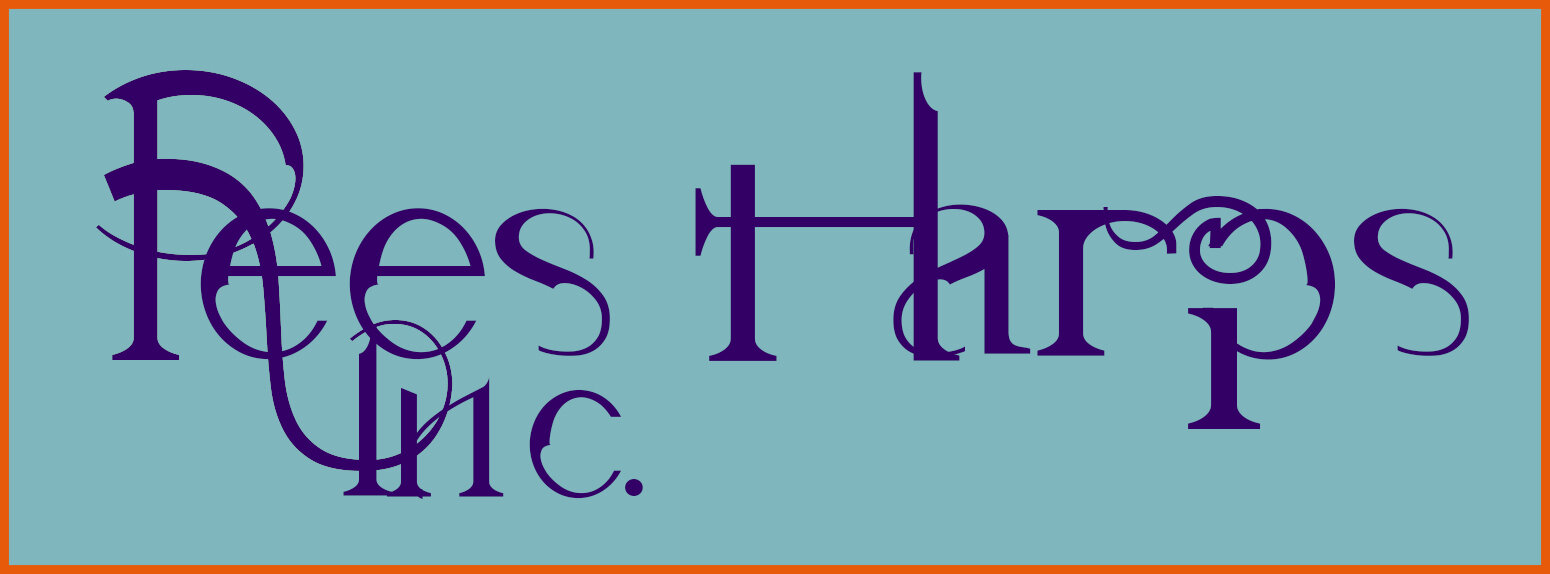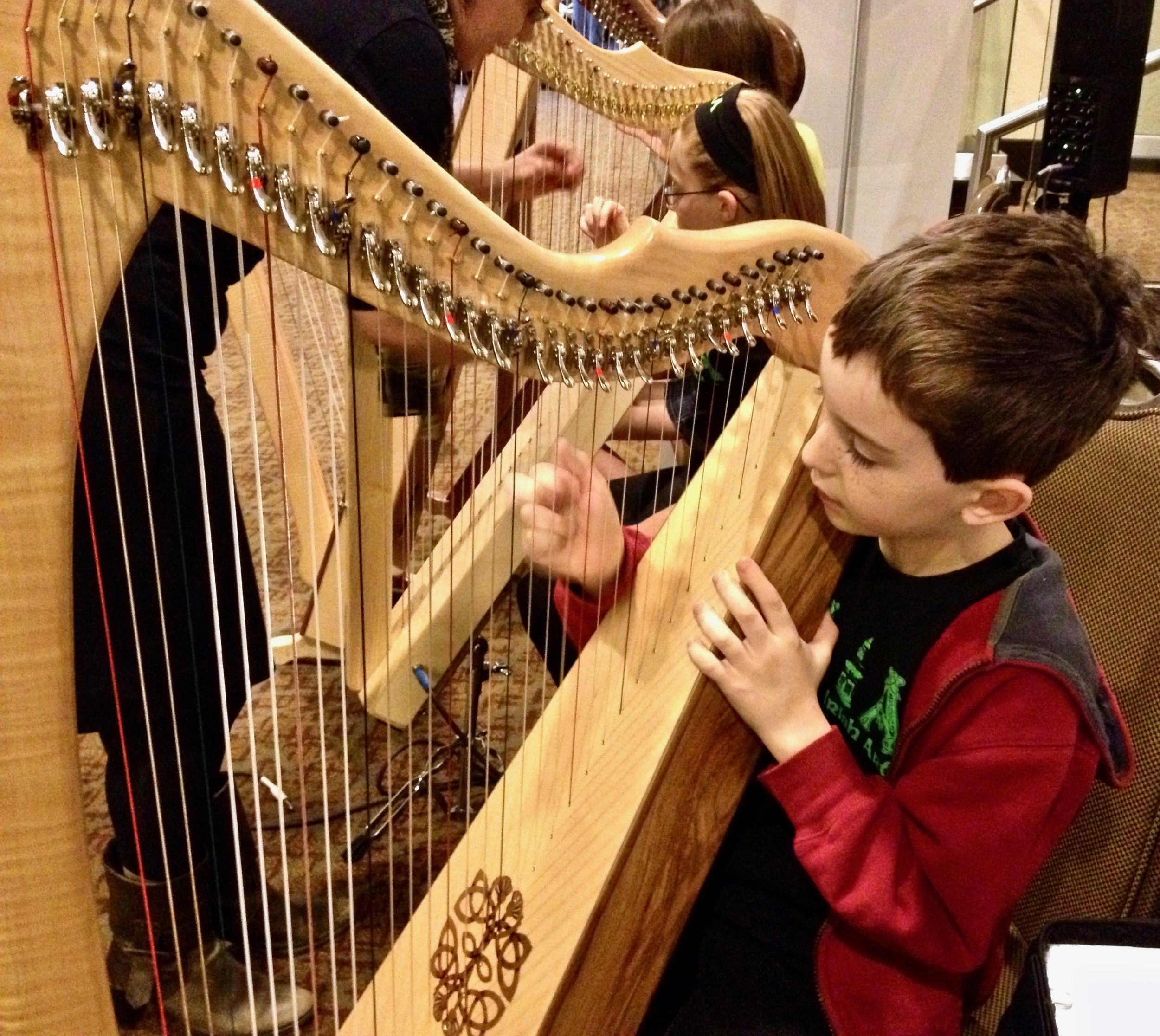The Harp is Easy to Learn!
Every single time we take the harps out to an event we hear someone say, "OH! It's a harp! I've always wanted to play the harp." Universally people are surprised to learn that, at its basic level, the harp is not particularly difficult to play. In fact, it is one of the easier stringed instruments to learn because there is no fretting or bowing. Harps also sound reasonably pleasant when being played, as beginners will, with hesitation and mistakes. Even when a harp stands mute it seems to draw people. There is a kind of magic in it.
Harp - if you aren't having fun you aren't doing it right! Camille Fournier and Garen Rees at NAMM 2016.
The Harp is Truly Easy to Learn
Within the spectrum of stringed instruments, the harp is listed as one of the easiest to play while the guitar and violin are ranked among the most difficult. Still, it is common for people to believe the opposite. For literally thousands of years people have been playing the harp. Ancient civilizations developed and played simple, formative harps. Both historically and in modern time in cultures all around the world, including the Middle East, Ireland, Africa, China, South America and Mexico, you can find harps being played by the wealthy and well educated as well as the common person.
Harps have not been mastered in these places because all these people have time to spend practicing arpeggios in their music rooms or the money to afford lessons. Harps have endured because they are accessible and generous to even the most rudimentary of players. Through time and across civilizations people learned to play either by teaching themselves or from the village harper. As with most things, the more effort and commitment you give to the harp, the richer and more compelling the resulting music. The particular joy of the harp is that even a simple piece of music, played by a beginner, sounds just lovely.
When we take the harps out into the general public, we are able to teach people with no musical training to play the beginning of "Joy To The World" in about three minutes time. The hard part is prying them away from the harp so other people can try it! Pianists find the harp especially easy because they already read treble and bass clef and the fingering is fairly similar. Like the piano, the lead or melody line on a harp is played with the right hand and the chords and bass with the left hand. Also, like the piano, the harp is not handed, both left and right handed persons play the same instrument in the same way.
If a harp is going to be the first musical instrument you've ever played, you will find it to be to be readily accessible. Those with a piano background are usually plucking two handed tunes the first time they play. Guitar players discover there is no fretting of the strings or awkward hand positions, no hammer-ons, no pick-offs and the technique is much simpler. Mastering a new chord is both simple and obvious, no chord chart required!
A young boy gives a Rees Mariposa a try at a show.
Can You Teach Yourself?
Yes! The large percentage of harp players we meet are self-taught or have had only a very a few lessons to get themselves started. Others are more comfortable learning from an established teacher either in person or YouTube or Skype.
If you think you would like to teach yourself but are wanting some support, our favorite simple book and DVD is published by Mel Bay and written by Darlene Walton, “The Harpsicle® Harp Method Book and DVD.” This set covers everything from how to tune and change a string to all the basics of beginning technique. There are, of course, several other beginning books and we always have a selection available in stock and on the web.
One last thing to know is that the lever harp community and, to the best of our knowledge, all of the various ethnic harp communities, are open and welcoming. Harpers love to meet other harpers and enjoy the opportunity to support one another. From small, local harp gatherings to the several annual regional gathering to the major international harp conferences, you will find that the participants are a generous and warm group. Even direct competitors are usually friends in the harp world - which makes it a pretty nice place to be.



